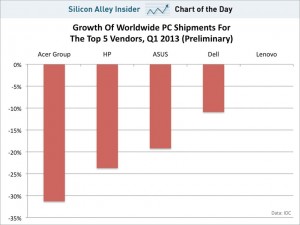This morning’s Observer column:
In 1999, Andy Grove, then the CEO of Intel, was widely ridiculed for declaring that “in five years’ time there won’t be any internet companies. All companies will be internet companies or they will be dead.” What he meant was that anybody who aspired to be in business in 2004 would have to deal with the internet in one way or another, just as they relied on electricity. And he was right; that’s what a GPT is like: it’s pervasive.
But digital technology differs in four significant ways from earlier GPTs. First of all, it is characterised by zero – or near-zero – marginal costs: once you’ve made the investment needed to create a digital good, it costs next to nothing to roll out and distribute a million (or indeed a billion) copies. Second, digital technology can exploit network effects at much greater speeds than the GPTs of the past. Third, almost everything that goes on in digital networks is governed by so-called power law distributions, in which a small number of actors (sites, companies, publishers…) get most of the action, while everyone else languishes in a “long tail”. Finally, digital technology sometimes gives rise to technological “lock-in”, where the proprietary standards of one company become the de facto standards for an entire industry. Thus, Microsoft once had that kind of lock-in on the desktop computer market: if you wanted to be in business you could have any kind of computer you wanted – so long as it ran Windows…
LATER Just came on this — which makes the same point about Amazon’s AWS, only more forcefully.

